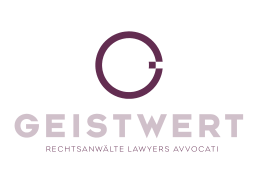From a cool business idea to a good investment
In recent years, the startup scene in Austria has experienced a major upswing. The trend towards crowd funding, the “privileged” founding of limited liability companies and a good funding environment prevailing in Business Location Austria have had a strong impact on this development. TV shows such as the BBC format “Dragon’s Den” and its Austrian counterpart “2 Minutes 2 Million” on Puls4 have also done their part in propagating this hype.
Industrial companies are increasingly investing in startups or trying to cooperate with them. This is likely due to the fact that rigid, hierarchical structures in large firms rarely provide the right breeding ground for innovation. Planning horizons on an annual basis combined with the corresponding bureaucracy can seldom match the innovative strength and flexibility of startups which thrive in a more relaxed “garage atmosphere”. A partnership between established industrial firms and startup founders can work quite well. Nevertheless, it is crucial to take several important points into consideration to ensure that such a cooperation ends up as a win-win situation.
Many mistakes ultimately serving as obstacles to investors committing to startups are already made while setting up the startups. For this reason, startups should not only be concerned about whether there is a market for their business idea, but above all how to protect the idea. It is generally known that a company will only attract investments if it possesses an innovative technology for a growth market. However, it is not uncommon for startups to realize far too late that the key issue is to safeguard themselves from being undermined by the competition.
The business idea is and will remain the most valuable asset of the founder. But the business idea has to be revealed in order to commercially exploit it. This is what precisely entails high risks. For this reason, the primary objective of the founder is to protect the business idea and the related know-how to the greatest possible extent. Intellectual and industrial property rights such as a patent, a registered design or brands are tried and tested methods to prevent third parties from taking advantage of the particular innovation. Confidentiality agreements can be concluded with business partners. Founders should be aware of the fact that intellectual property rights are granted on the basis of the novelty requirement. For example, patents are not granted if the inventor has already disclosed his invention to the public before the patent application was submitted.
Unfortunately, there is no general prescription to optimally protect innovations. Instead, it is essential to examine each business idea on its own and ensure that the business idea is not revealed as long as appropriate precautions have not been taken. Comprehensive and competent consulting of founders at an early stage is indispensable. An ill-considered step in protecting inventions can have fatal consequences. It should always be kept in mind that at worst, non-existent or poorly formulated intellectual property rights can end up involving millions of euros.
